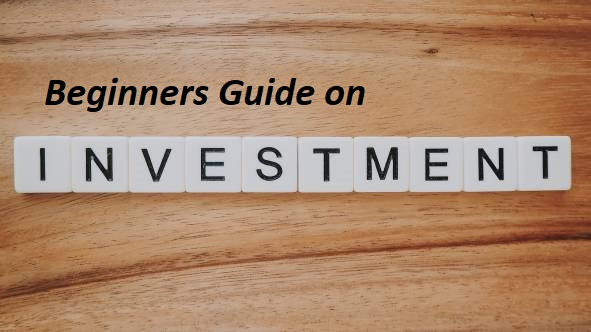
Investment in Share Market for Beginners | Learn Basic of Investment
Investment in Share Market for Beginners: In this article, we are going to cover the basics of share market/ stock market investment thought analysis, also we will cover multiple points and terms which is very much helpful once you start playing and enjoying the stock market and when you gonna buy or sell your first stock.
Beginners investing in stocks here the first thing that comes to mind is this complicated world of the stock market. With so many charts and numbers, it’s easy to get confused, so let’s break it down and try to make sense of it.
Let’s say you’ve built a business, but now you need some more money to expand, or maybe you just want a private jet. Where do you get the money from? Here’s an idea for you, why not break down your business and sell some of it while keeping the majority stay in charge? That’s what the stock market is for and this process is known as the Initial Public Offering (IPO). But how much money can you earn?
How to Share Market Works-Beginners Investing In Stocks
Beginners investing in stocks, Let’s take an example of Mark Zuckerberg’s little toy: Facebook. It went public in 2012 with 337 million shares at a price of $ 38 a share. Not bad, right? But, when he realized that there were many more people who wanted a piece of his cake, he added another 84 million shares (421 million). And guess what? He sold each and every one of them. And it raised $ 16 billion.
Also Read - 5 Parameters you Should Know Before you can Buy or Sell Shares
He literally became a billionaire in a few hours. In fact, the stock price rose to $ 45 within the first trading day. It seems like Facebook was doing really well, but it was too early to celebrate because at the end of the day it looked like I was 38 years old, and that was just the beginning. The bad news was just beginning. In the next few weeks, the shares tumbled to $ 20.
What is Dividend
That’s why the shares of a single buffet (Berkshire Hathaway) cost more than $ 300,000. I guess most of us will never join the secret investor society buffets. But don’t worry, Buffett wouldn’t mind taking your money either. That is why he created class B shares that are more affordable (200usd).
Let's see 3 important points to remember while investing money in the stock market as follow:
1. Decide how you want to invest in stocks
There are several ways to approach stock investing. Choose the option below that best represents how you want to invest, and how hands-on you'd like to be in picking and choosing the stocks you invest in.
"I'm the DIY type and am interested in choosing stocks and stock funds for myself." Keep reading; this article breaks down things hands-on investors need to know. Or, if you already know the stock-buying game and just need a brokerage, see our roundup of the best online brokers.
"I know stocks can be a great investment, but I'd like someone to manage the process for me." You may be a good candidate for a Robo-advisor, a service that offers low-cost investment management. Virtually all of the major brokerage firms offer these services, which invest your money for you based on your specific goals. See our top picks for Robo-advisors.
Once you have a preference in mind, you're ready to shop for an account.
2. Set a budget for your stock investment
New investors often have two questions in this step of the process:
How much money do I need to start investing in stocks? The amount of money you need to buy an individual stock depends on how expensive the shares are. (Share prices can range from just a few dollars to a few thousand dollars.) If you want mutual funds and have a small budget, an exchange-traded fund (ETF) may be your best bet. Mutual funds often have minimums of $1,000 or more, but ETFs trade like a stock, which means you purchase them for a share price — in some cases, less than $100).
How much money should I invest in stocks? If you’re investing through funds — have we mentioned this is our preference? — you can allocate a fairly large portion of your portfolio toward stock funds, especially if you have a long time horizon. A 30-year-old investing for retirement might have 80% of his or her portfolio in stock funds; the rest would be in bond funds. Individual stocks are another story. We’d recommend keeping these to 10% or less of your investment portfolio.
3. Focus on the long-term
Stock investing is filled with intricate strategies and approaches, yet some of the most successful investors have done little more than stick with the basics. That generally means using funds for the bulk of your portfolio — Warren Buffett has famously said a low-cost S&P 500 index fund is the best investment most Americans can make — and choosing individual stocks only if you believe in the company’s potential for long-term growth.
The best thing to do after you start investing in stocks or mutual funds may be the hardest: Don’t look at them. Unless you’re trying to beat the odds and succeed at day trading, it’s good to avoid the habit of compulsively checking how your stocks are doing several times a day, every day.
Conclusion:
Share market topic is never going be end there are n numbers of topics and discussion and opinion. But today we have shared the basics of investment and share market investment guides. I hope you have some basic idea about this now. If you find this useful kindly share it on Facebook and Twitter. Thanks for reading.


0 Comments: